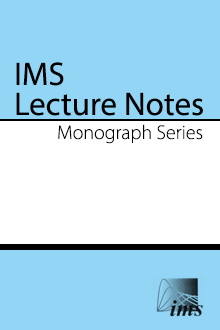Abstract
When estimating the mean of a normal distribution with squared error loss and a cost for each observation, the optimal (fixed) sample size depends on the variance $\sigma^2$. A two-stage sequential procedure is to first conduct a pilot study from which $\sigma^2$ can be estimated, and then estimate the desired sample size. Here an asymptotic formula for the initial sample size in a two-stage sequential estimation procedure is derived-asymptotic as the cost of a single observation becomes small compared to the loss from estimation error. The experimenter must specify only the sample size, $n_0$ say, that would be used in a fixed sample size experiment; the initial sample size of the two-stage procedure is then the least integer greater than or equal to $\sqrt{n_0/2}$. The resulting procedure is shown to minimize the maximum Bayes regret, where the maximum is taken over prior distributions that are consistent with the initial guess $n_0$; and the minimax solution is shown to provide an asymptotic lower bound for optimal Bayesian choices for a wide class of prior distributions.
Information
Digital Object Identifier: 10.1214/lnms/1196285393


